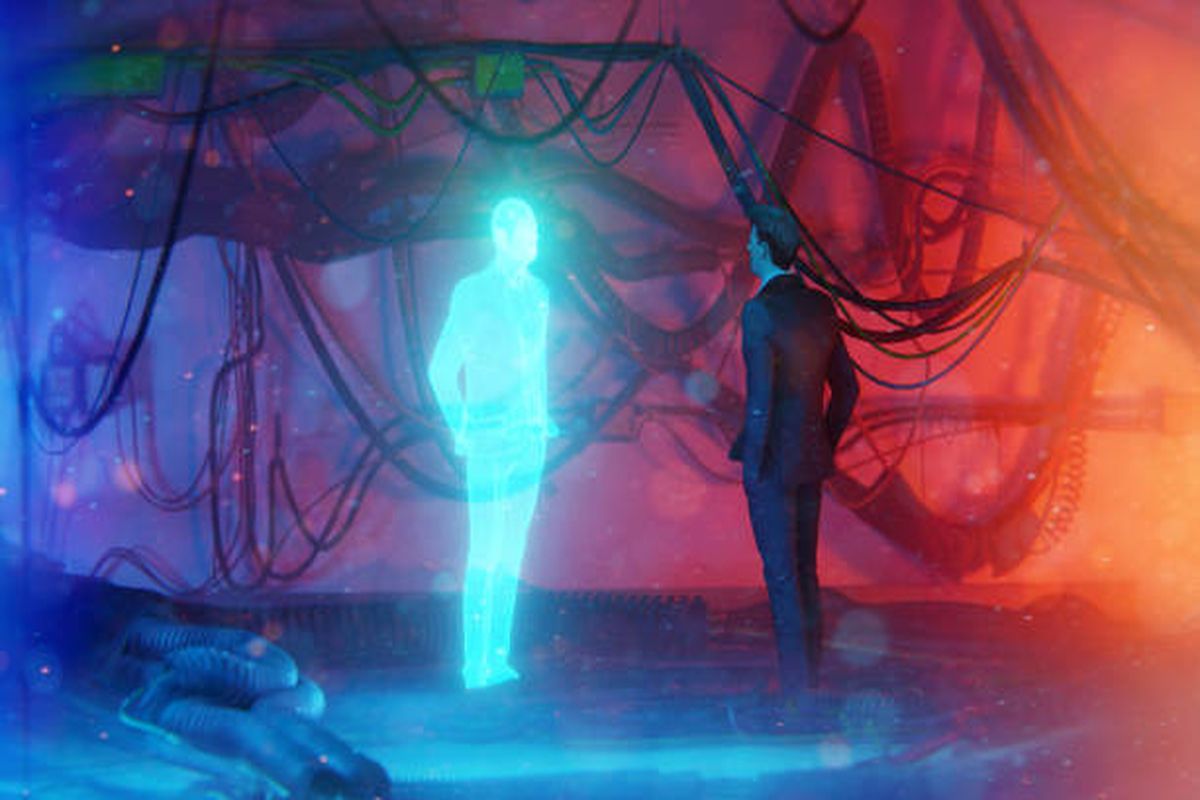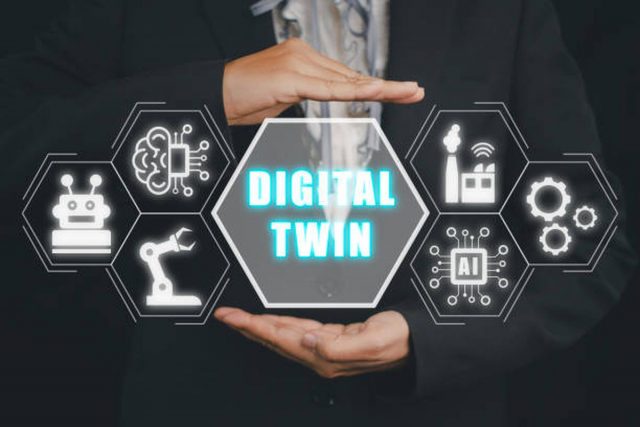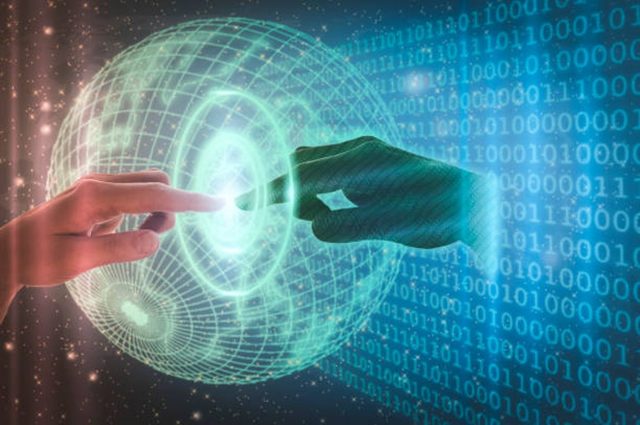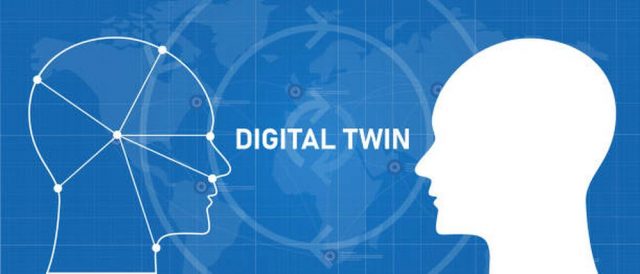We are officially in the artificial intelligence (AI) era. Mind Bank AI was among the newest entrants in 2020 when it came up with the ambitious idea of using AI to create immortality for users.
When the COVID-19 pandemic struck, lockdowns were implemented in many countries globally. Virtually everyone was affected by these lockdowns and Emil Jimenez was not spared. While on a train from Vienna to Prague, his four-year-old daughter accidentally activated Siri while playing Pony Games on her iPad.
She asked her father:
“She’s like, ‘Daddy,’ y’know, ‘what is this?’”
Jimenez told her it was Siri, and encouraged her to talk to the digital assistant. She started by asking whether Siri has a mother.
From there, she asked the artificial intelligence all sorts of questions that kids ask and, by the end of their long conversation, Jimenez’s daughter said that Siri was her best friend.
Jimenez has a background in psychology and saw the heartwarming interaction between Siri and his daughter as an interesting development. He was amazed by how quickly and smoothly his daughter formed a relationship with the artificial intelligence. In many cases, users ring Siri when they need something, even if it is a laugh.
However, a generation has come up rapidly forming a relationship with devices, robots, and AIs, which is different from those users who did not come of age with AI.
Jimenez knows how a natural language processing (NLP) algorithm like Siri works and understands speech. A deep-learning black box in the cloud enables Siri to offer answers to nearly every question asked.
Related: Lawsuit Targets The Way Microsoft’s -Copilot A.I. Is Developed
Through the simple interaction between Siri and his daughter, Jimenez got an idea:
“Today (my daughter) speaks to Siri. But one day in the future, I want her to speak to me. Because I know I’m not going to be around forever, and I love my daughter to bits … What if I’m always able to help her?”
A Digital Twin
This is an incredible story about ‘your’ future, or your possible future at least.
Jimenez’s desire pushed him to launch Mind Bank Ai, a startup with a staggering ambition of breaking the chain of death and knowledge loss for the people that you leave behind. The firm aims to offer a simulacra of you that can live forever and can be consulted, called upon, commiserated and argued or joked with.
The ‘personal digital twin’ Mind Bank Ai envisions will be set up, across your lifetime, from a data set of you. Through conversations, the AI creates a model meant to ‘think’ like you, fully understand your personality, and, ultimately, manage to apply the model to future conditions: conversing as you would and answering as you would.
“What’s wrong? What do you like to eat? How did you meet your wife? Why are you divorced?”
Jimenez imagines Mind Bank Ai asking ‘all the questions of life,’ similar to the conversations that people have to get to know one another. Getting to know humanity, essentially, is what the AI would be doing, after all.
Mind Bank Ai aims to create a digital twin that would speak in your voice, since voice can be powerfully evocative, able to bring out how you look in the listener’s mind.
While this personal data is gathered, users can converse with Mind Bank Ai as an opportunity to self-reflect and get to know themselves better – Socratic psychology, or “a fitness tracker for your mind” – as highlighted by Jimenez.
Jimenez believes that interacting with Mind Bank Ai is an opportunity to self-reflect, as the digital twin gets closer to being like you.
Speaking Forever
It is after death that Mind Bank Ai truly comes in handy, like a digital cryogenics lab. A personal digital twin is an idea as old as humanity: the desire to live forever or at least pass on your experience, knowledge, and insights.
While the perfect digital twins will take some time to come to life, the capabilities of modern natural language processors (deep-learning programs behind Alexa, Siri, and predictive texting) and the remarkable replicas called deepfakes are moving the idea from the fantastical toward the might-be-possible.
Emil Jimenez said:
“Today (my daughter) speaks to Siri. But one day in the future, I want her to speak to me. Because I know I’m not going to be around forever, and I love my daughter to bits … What if I’m always able to help her?”
Some startups and computer programmers already have developments similar to Jimenez’s vision. On that note, Replika founder Eugenia Kuyda developed a digital version of her friend, Roman Mazurenko.
The Verge‘s Casey Newton wrote:
“As she grieved, Kuyda found herself rereading the endless text messages her friend had sent her over the years — thousands of them, from the mundane to the hilarious.”
Mazurenko was relatively inactive on social media and his body was cremated. Only his photos and texts were all that was left.
Related: Artist Refik Anadol Used AI To Interpret And Transform Over 200 Years Of Art At MoMA
Until that point, Kuyda had been working on the Y Combinator-backed Luka, a messenger application for communicating with bots. Using Mazurenko’s canon, she developed a bot that may respond like her friend whenever it is prompted. Newton said:
“She had struggled with whether she was doing the right thing by bringing him back this way. At times it had even given her nightmares.”
Those deep interactions spread to bigger groups, some users refused to interact with the Roman bot, while others enjoyed relief from it.
Then, there is the Dadbot, which was created by James Vlahos. When his father got diagnosed with terminal lung cancer, Vlahos recorded all that he could to create Dadbot – a form of “artificial immortality.”
Vlahos is the CEO of HereAfter AI, which designs “legacy avatars” designed from recorded interviews. He said:
“They are this digital agent that’s modeled after the person who created it. It shares primarily their life story and memories, and secondarily, their persona, their personality; the way they talk, their jokes, their wisdom, that type of thing.”
Users can interact with a legacy avatar just like Alexa or Siri, but it answers personal questions in the person’s voice. But, Mind Bank Ai wants to develop a digital twin beyond this capability. In turn, it comes with lots of challenges and opportunities, both philosophical and technical.
“How far are we from creating a you that feels real? What decisions could we trust them with? Will they help us grieve, or cause us never to let go?”
The Architecture Of The Digital Twin
The digital twin needs bones and brain and Sascha Griffiths, the co-founder and chief technology officer of Mind Bank Ai, is researching and coding, accumulating the AI algorithms and tools required to copy users. Multiple AIs may come into play including topic modeling, sentimental analysis, and generative adversarial networks.
As this project evolves, Griffiths looks to create more customized algorithms to develop better digital twins. But, the most important in the early days of development is natural language processing (NLP).
NLPs are used mostly in digital assistants and many types of predictive texting tools. GPT-3 is an NLP that explores the internet to create realistic text, from conversations to essays.
Ahmet Gyger, an AI researcher and advisor to Mind Bank Ai, said that there will be notable differences between those NLPs and your digital twin. Mind Bank Ai wants to help users understand how they feel concerning past events and possibly build “an obvious understanding of somebody’s life experience.
“And once you get that, then you open the door to being able to say ‘well, how will that person react in a new situation?’ And that becomes interesting.”
For now, Griffith says it is not yet possible to have a true conversation with AI. The “legacy avatar” of HereAfter AI can be developed quickly, but Mind Bank Ai’s digital twin is still a bit far. A senior applied scientist on the Amazon Alexa team, Christos Christodoulopoulos, commented:
“Even if we could capture and interpret all linguistic and non-linguistic cues, another big problem would be to generate novel things for the ‘digital twin’ to say.”
Christodoulopoulos writes:
“Many of the things we do in daily life are “scripted,” to a degree. When it comes to these kinds of interactions, AI is already capable of imitating us: ordering a coffee is pretty close to a script, but “our crucial, meaningful interactions aren’t.”
“Think of trying to comfort a friend after a break-up, or share in your spouse’s joy when they get a promotion: if you relied on formulaic, ‘canned’ responses, it would sound hollow — no better than interacting with a stranger.”
Hence, Mind Bank Ai will have to overcome some issues to understand people’s emotions, backgrounds, and cultures. They have to deliver an AI that can handle many types of interactions and overcome the brittleness that is in-built into AIs.
Related: Will AI Reinvigorate Our Approach to Productivity?
AI is ‘brittle’ since it operates only within what it knows. When it comes across an input it cannot recognize, it fails miserably. Christos Christodoulopoulos commented:
“Even if we could capture and interpret all linguistic and non-linguistic cues, another big problem would be to generate novel things for the ‘digital twin’ to say.”
Artificial intelligence also needs to develop some common sense to offer viable answers in any scenario. There are two main strategies for tackling this issue. One is to gather all the common knowledge to ensure AI is trained on it – no trivial issues. Gathering the huge amount of data required seems to be taking decades.
It is nearly impossible to collect everything and highly expensive. Also, knowledge in text suffers from “reporting bias,” where the unusual is overrepresented since that is what is worth writing down.
The Collected Data Is You – The Twin Is Not
While GPT-3 learns by scouring everyone on the entire internet, your digital twin will focus only on you. There are privacy concerns and it gets tricky when the data stops being you and is transformed into your digital twin.
Griffith said that a Mind Bank Ai digital twin would only be a representation of the user. It would be trained on a user’s data, and hopefully, it would speak, sound, and ‘think’ like the user. However, it is not an uploaded brain or a continuation of the user’s existence. It does not evolve, grow, change, or learn like a human.
Artificial intelligence is better at pattern recognition than human beings, and the NLP can discover patterns in your speech and ‘thoughts’ that you might not even be aware of. Applying these may help create a more accurate digital twin, one that narrowly, knows you better than you even know yourself.
Related: AI Tech Demand Exploded By 500% In 12 Months Boosted By ChatGPT Success
However, if the digital twin’s AI follows some specific pattern, it might design a version of you that is distorted or amplified. The founding director of the Center for the Future Mind at Florida Atlantic University, philosopher Susan Schneider, said:
“One piece of data could tweak it in these really bizarre ways. Leaving a loved one confused; ‘would grandpa do this?’”
The algorithms that power the digital twin are susceptible to brittleness, possibly resulting in hazardous failures.
On that note, challenges come in that AI can make plausible and convincing arguments that might exceed its grip on common sense. If humans catch this shortcoming, they become alienated and distrust their digital friends, instead of being comforted – and when they don’t, they risk being misled.
For now, everything is under development and it may take time before a functional digital twin comes to life.











